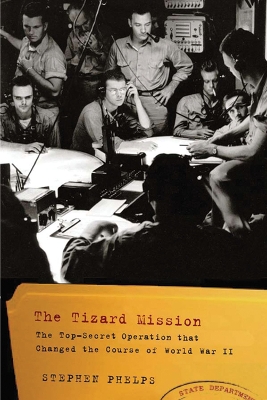"One of this book's many attractions is its emphasis on the importance of interrelationships among social, political, and technical worlds in bringing ideas to reality."--The Wall Street Journal "Erudite, literate, and thoroughly absorbing."--Booklist "As Stephen Phelps reveals in this much needed book, the United Kingdom's decision to share its secrets with the United States was a key turning point in the Second World War."--John Liffen, Science Museum London In August 1940, a German invasion of Britain looked inevitable. France had surrendered and Luftwaffe bombers were pounding British cities. However, Britain's brightest scientific minds had been secretly working on futuristic technology, including radar and jet propulsion. While the great value of radar to locate and identify distant objects in day or night was appreciated, it was thought that practical radar required a gigantic device for generating an effective signal. But Britain had something extraordinary--the cavity magnetron, a generator hundreds of times more powerful than any other and small enough to be held in the hand.
Winston Churchill gambled on an unorthodox plan: a team of scientists and engineers led by Sir Henry Tizard would travel under cover to the United States and give Britain's military secrets to the Americans in order to secure manufacturing support--or even their entry into the war. The Tizard Mission handed their American counterparts details of the Whittle jet engine, research for an atomic bomb, and a precious cavity magnetron--described by one American scientist as "the most valuable cargo ever brought to our shores." The Americans proved to be astonished, receptive, and efficient: Bell Telephone produced the first thirty magnetrons in October 1940. With this device, both warships and aircraft could carry war-winning radar. In addition, these same technologies would produce a fortune for postwar commercial industries, with the magnetron being the key component of the microwave oven.
In The Tizard Mission: The Top-Secret Operation That Changed the Course of World War II, Stephen Phelps reveals how this scientific exchange marked the turning point in the technological war, giving Britain the equipment it desperately needed and laying the groundwork for both the Special Relationship and the United States's postwar economic boom.
- ISBN10 1594161631
- ISBN13 9781594161636
- Publish Date 1 May 2012
- Publish Status Active
- Publish Country US
- Imprint Westholme Publishing, U.S.
- Format Paperback
- Pages 352
- Language English
